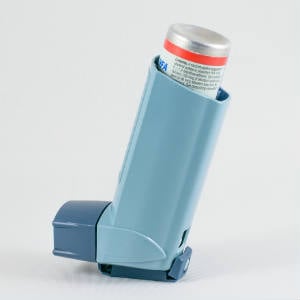Being able to breathe well is crucial for quality of life. A percentage of olderpeople, though, regularly experience shortness of breath. Some of the medical conditions associated with shortness of breath can be prevented, and all of them need treatment when they occur.
Here is more information about three of the most common issues that affect lung function.
The University of Cincinnati cites that approximately 23 million people in our country have asthma, many of whom are older adults. Too often, the article points out, this lung function condition goes untreated in older people. When asthma-related shortness of breath is being treated, older adults often need more medication than younger ones, and this respiratory issue can make treating other health conditions more challenging. During even mild attacks, older people are more likely to experience respiratory failure.
No. 1 Asthma
The good news is that asthma can usually be managed, with the Asthma and Allergy Foundation of America (AAFA) and HealthyPeople.gov providing information about the condition.
Risk factors being investigated include having a parent with the condition, being overweight, being sensitive to allergens/irritants and having had childhood respiratory infections. Among children, boys more frequently have asthma; in adults, it’s women. Populations particularly at risk include African Americans and Puerto Ricans, people exposed to certain irritants at work, people living in poverty and those living in the northeastern part of the United States.
Each person with asthma has different triggers (here is information on that topic) and identifying them is a core part of the treatment plan. Triggers can include allergies, environmental irritants, respiratory illness, weather, exercise, emotional issues and more. Treatments include inhalers, nebulizers, long-term control medicines and quick-relief ones.
What’s most important: working with your doctor to find what works best for you and sticking with the plan. If your lung function worsens or changes, contact your doctor.
No. 2 Chronic Obstructive Pulmonary Disease (COPD)
Approximately 27 million people in the United States have COPD, which is an umbrella term for progressive lung disease. This includes emphysema and chronic bronchitis, with this condition caused by exposure to cigarette smoke and/or other environmental irritants.
An article in Healthline.com shares that, after a COPD diagnosis, your doctor will likely recommend lifestyle changes, which include not smoking and avoiding secondhand smoke. You may be prescribed vitamins and advised to eat a healthy diet and exercise regularly. You will probably be given medications that help with breathing. You may also need oxygen therapy.
No. 3 Normal Part of Aging
As people age, bones thin. As this happens, the rib cage can change shape and become more rigid. This by itself can make it more difficult to breathe. And, as diaphragm muscles become weaker, the problem can compound. Air sacs can become baggy and muscles may lose some ability to keep airways completely open. It’s also possible for the brain to lose some function and, when that occurs where the brain controls breathing, respiratory issues can occur. The bottom line: shortness of breath sometimes occurs simply as a part of aging.
To keep your lungs as healthy as possible as you age, do not smoke. Exercise and avoid lying down or sitting for too long. Inactivity creates a prime environment for mucus to accumulate in your lungs, putting you at risk for an infection. Movement can be challenging after surgery or during illness, but it’s important to not remain sedentary.










